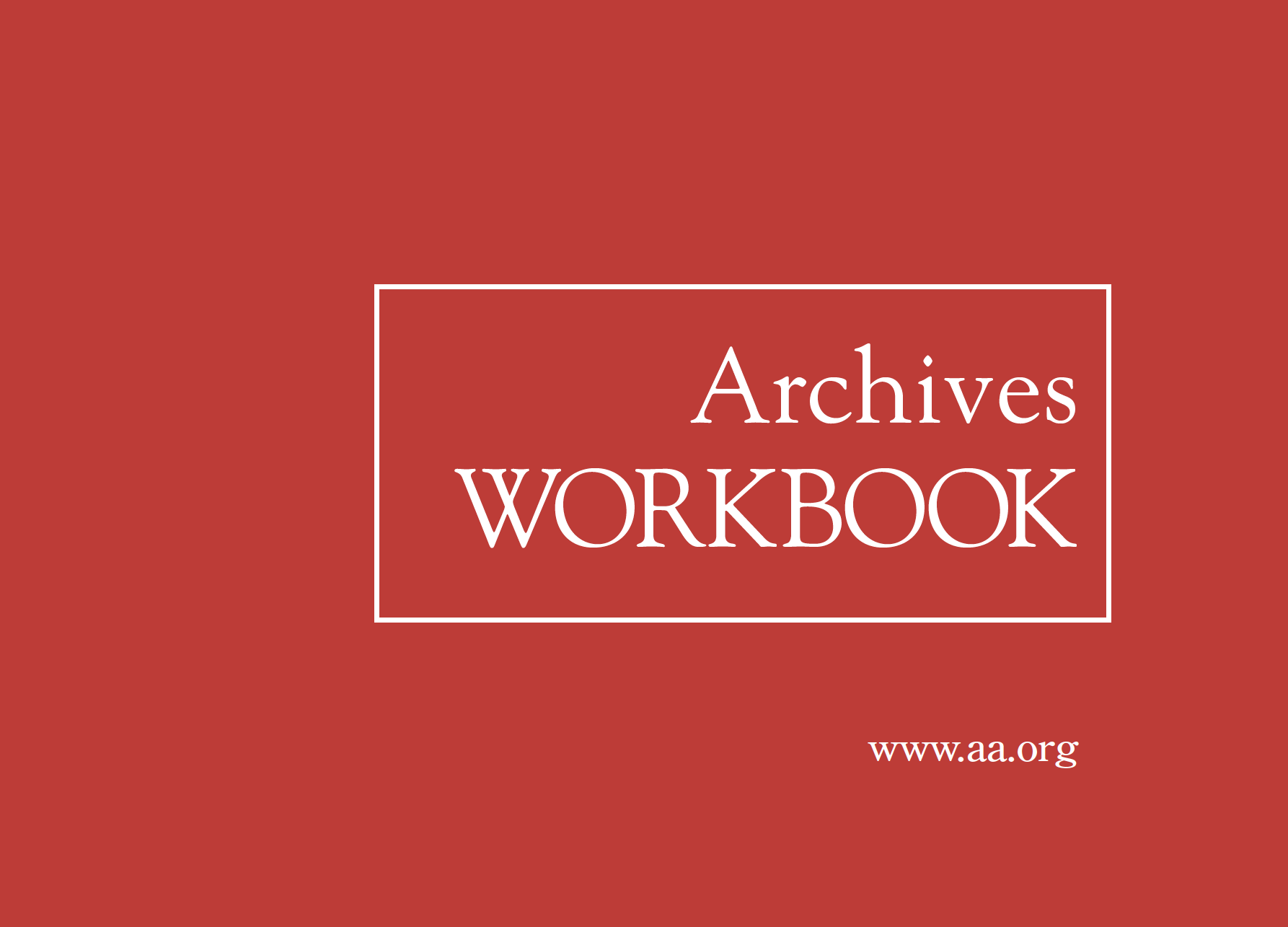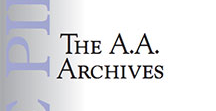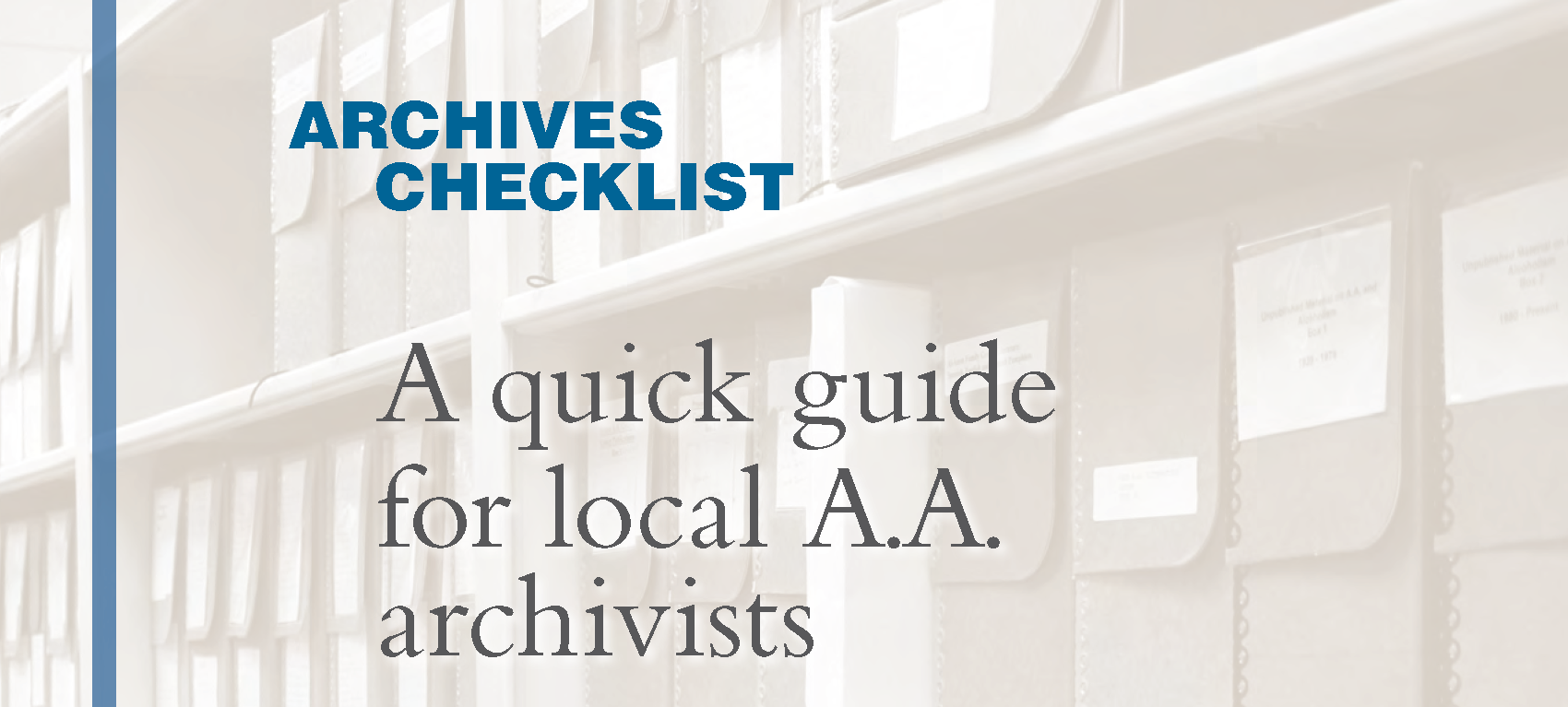Committee members:
- Conduct A.A. Archives workshops
- Create portable archives exhibits to display at local A.A. events
- Ask groups to complete Group History forms to capture local A.A. history
Related Information
Resources for Archivists
Archives Committees work to collect, preserve and share the history of A.A.
A.A. service piece describing the historical importance and functionality of A.A. Archives at the group, district, area, intergroup/central office, region or General Service Office levels.
A quick guide for local A.A. archivists
Further reading and references
Additional links to workbooks, guidelines, and flyers to further assist in researching the Archives of A.A.
Service Ideas for Archives Committees
- Show the DVD Markings on the Journey in Archives workshops or other A.A.-related events, to inspire interest in A.A.’s history.
- Create presentations about Archives Committee activities, including photos of your own repository and exhibit area.
- Create portable exhibits that are easily conveyable to various events, such as state or regional A.A. conventions, Area assemblies and district or central office meetings.
- Organize oldtimers meetings and invite a number of A.A. members with longtime sobriety in your Area to share their stories.
- Initiate projects and assign one task per committee member, for example, digitizing analog recordings to digital media, conducting inventories, creating finding aids, scanning, filing and other archives-related tasks.
- Host an annual archives open house and invite other service committees to display their work.
- Host archives workshops and include hands-on activities and tours of your archives repository.
- Communicate with other local Archives Committees and archivists to share your own experience and glean suggestions from others involved in archives service work.
- Develop forms, policies or guidelines, as practical, for local needs. These may include, for example, Collection Scope; Deed of Gift Form; Group History Questionnaire; Guidelines for Collecting Oral Histories; Oral History Release Form; Photocopying Policy; and Research and Access Policy.
- Produce an archives newsletter or contribute to a section in your Area’s newsletter, highlighting your work or a new and exciting find.
For more details on service through archives, see the A.A. Guidelines on Archives Work.
Share Archives Experience
The Archives desk at the A.A. General Service Office is dedicated to Archives activities. Committees are encouraged to share local experiences and challenges with this desk.


